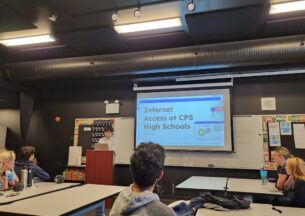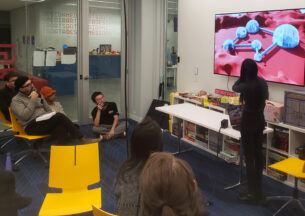Nick Feamster (UChicago)- Fifteen Years of Measuring Access Network Performance: From Benchmarks to Equity
Abstract: The last 15 years have seen significant advances in the area of measuring broadband access networks. In the mid-2000s, measuring access networks was simpler: access networks were typically the throughput bottleneck along an end-to-end path, and access speeds were slower, making it far easier to measure ISP performance and understand the contributions of the access ISP to overall end-to-end performance.
Today, as access network speeds have increased, performance bottlenecks may lie anywhere along an end-to-end path, complicating performance analysis. Furthermore, higher access throughput has shifted attention to other metrics, such as latency and application performance, which present their own challenges. The increasing importance of the Internet in everyday life has also amplified interest in questions of quality of experience (QoE) and equity of Internet access, adding new research directions to the age-old problems of Internet performance measurements. This talk narrates a 15-year research arc that starts with simple speed test designs and ends with problems in QoE and equity, which are ultimately geared towards the larger goal of improving the lived experience of Internet users around the world.
I will first discuss our early and ongoing work designing and evaluating state-of-the-art “speed tests”. Then, I will present our early and ongoing research on application quality of experience QoE inference, focusing on techniques we have developed to infer quality metrics such as startup delay and resolution for encrypted video streaming services, including a multi-year investigative effort in collaboration with the Wall Street Journal that has now also formed the basis of a commercial venture, NetMicroscope. At the core of this work are machine learning models that perform quality inference across diverse services such as Netflix, YouTube, Amazon, and Twitch. These models provide fine-grained predictions, revealing, for instance, that higher Internet speeds often yield only marginal improvements to QoE metrics like startup delay and resolution. Finally, I will share some of our ongoing work on Internet equity, as part of the Internet Equity Initiative, which I founded and direct at the University of Chicago. In recent work, we apply spatial modeling techniques to crowdsourced measurement datasets to construct stable sampling boundaries that reflect disparities in Internet performance across neighborhoods. By overlaying interpolated maps and clustering contiguous regions, we demonstrate how our methods outperform traditional approaches that rely on predefined social or political boundaries. I will close with a reflection on the evolution of Internet access network performance measurement, discussing what has changed over time, and what aspects of the problem remain timeless.
Speakers

Nick Feamster
Nick Feamster is the Neubauer Professor of Computer Science and the Director of Research at the Data Science Institute at the University of Chicago. Previously, he was a full professor in the Computer Science Department at Princeton University, where he directed the Center for Information Technology Policy (CITP). Prior to Princeton, he was a full professor in the School of Computer Science at Georgia Tech. His research spans many aspects of computer networking and networked systems, with a focus on network operations, network security, and censorship-resistant communication systems. He earned his Ph.D. in Computer Science from MIT in 2005 and his S.B. and M.Eng. degrees in Electrical Engineering and Computer Science from MIT in 2000 and 2001, respectively. He was an early-stage employee at Looksmart (acquired by AltaVista), where he developed the company’s first web crawler, and at Damballa, where he helped design the company’s first botnet-detection algorithm.
Nick is an ACM Fellow and has received numerous awards for his contributions to computer networking and cybersecurity, including the Presidential Early Career Award for Scientists and Engineers (PECASE) for his work on spam filtering. Other honors include the Technology Review 35 “Top Young Innovators Under 35” award, the ACM SIGCOMM Rising Star Award, a Sloan Research Fellowship, the NSF CAREER award, the IBM Faculty Fellowship, and the IRTF Applied Networking Research Prize. His research papers have received awards at ACM SIGCOMM (on the network-level behavior of spammers), the SIGCOMM Internet Measurement Conference (on measuring web performance bottlenecks), USENIX Security (on circumventing web censorship using Infranet and web cookie analysis), and USENIX Networked Systems Design and Implementation (on fault detection in router configuration and software-defined networking). His seminal work on the Routing Control Platform received the USENIX Test of Time Award for its impact on Software Defined Networking.












